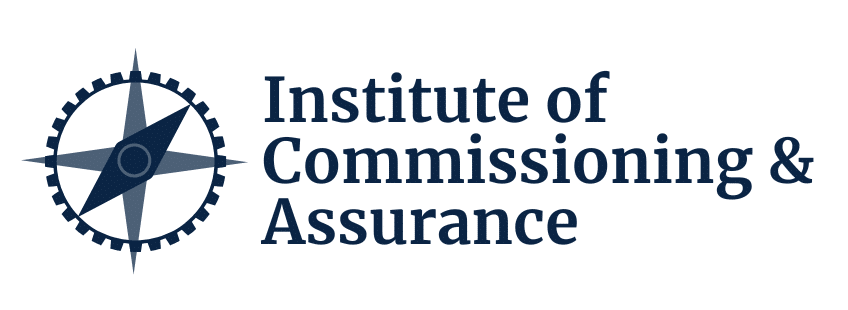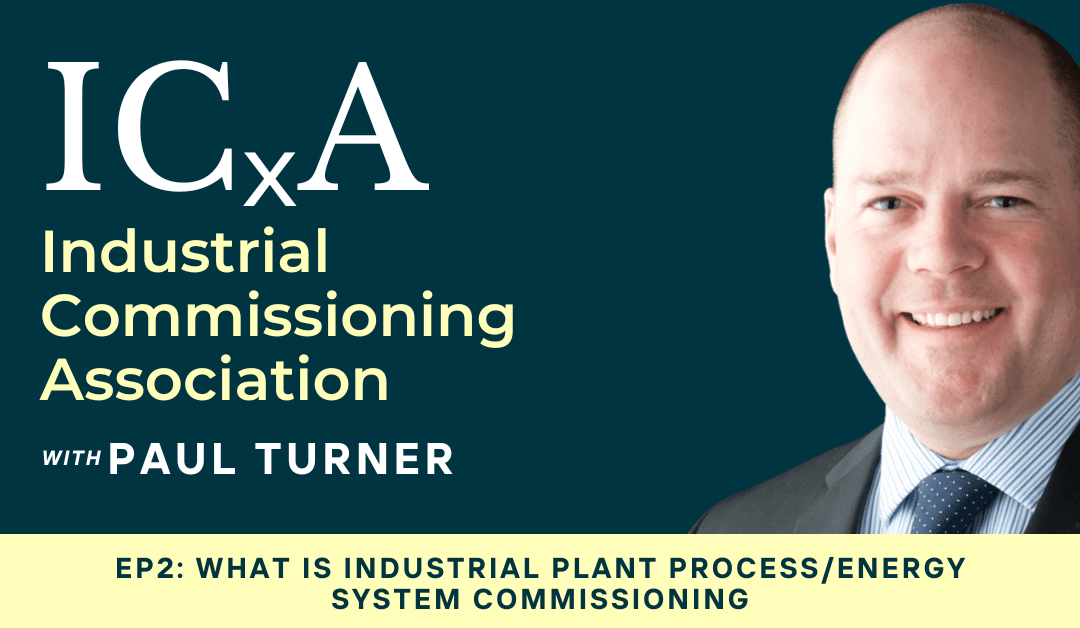I often get asked, “What industries do ICxA commissioning standards apply to?” So today, we’re going to answer that.
There have been many great resources and certifications for the building commissioning industry, and they’ve been doing excellent work over the years supporting building commissioning. However, there hasn’t been much support for industrial projects. That’s why the Industrial Commissioning Association (ICxA) was established: to provide specific support to industrial plant process and energy system commissioning, which is a bit different and more applied than some of the information you’d see in the building commissioning industry.
So, what industrial energy systems do ICxA’s commissioning standards apply to? Well, that would include oil and gas systems—any upstream, midstream, or downstream facility in the oil and gas industry. An example would be LNG projects, which are in high demand these days for bringing an LNG train online. ICxA’s commissioning standards definitely apply here.
They also apply to power systems, such as hydroelectric generating stations, combined-cycle gas turbines, and nuclear plants. There might even still be some coal plants being built out there. Any type of power system would definitely fall under these standards.
For power transmission, ICxA standards apply to systems like HVDC transmission or high-voltage transmission substations, such as 230KV or A500KV switchyards. The industrial commissioning process is highly relevant here.
Renewable energy systems, which are increasingly common, are another area. Solar, wind, biogas, and hydrogen systems—especially blue and green hydrogen projects—are great examples of industrial energy systems where ICxA standards apply.
Industrial energy systems are the critical infrastructure working behind the scenes to power our economies and societies. These are the types of industrial energy systems that ICxA is committed to supporting through commissioning and procurement standards, membership resources, seminars, training, and certification for the industrial commissioning industry.
Now, what is an industrial plant process? This would include water and wastewater treatment facilities, chemical manufacturing plants, fertilizer manufacturing plants, desalinization plants, refinery systems, and mining facilities with electrical and mechanical equipment involved in battery production and recycling. These processes are quite in demand, especially for the electric vehicle market and battery production and recycling.
Other examples include food processing facilities, semiconductor manufacturing, and pharmaceutical manufacturing. Industrial plant processes are typically mechanical systems with one input at the front end of the plant and several electrical, mechanical, and automation systems working together as one plant process to generate an intended outcome from the back end of the plant.
Industrial plant processes are the infrastructure that powers our societies behind the scenes, generating clean water, manufacturing products for various industries, and treating and recycling the waste produced by society. While each of these industries performs different functions, the same industrial commissioning process applies to all. The same risk-mitigating approach to commissioning, starting early in projects, and the same operational readiness tasks apply to commissioning and starting up these complex facilities, ensuring reliable operation to power our society.
These are the industrial plant processes and energy systems that ICxA is committed to helping improve, in terms of cost, schedule, and quality performance, for better project outcomes.
So, please consider subscribing to our podcast to stay up to date on ICxA initiatives and to learn the best commissioning practices to apply to your industrial plant process and energy system projects.


Recent Comments